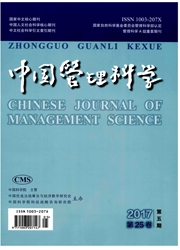

 中文摘要:
中文摘要:
线上线下互动是随着互联网和虚拟社区发展而出现的新现象,伴随着社区会员的线上线下互动,虚拟社区内部出现了群体分化。以社会认同理论和社会网络理论为基础,本文对线上线下互动中会员关系的变化及其对知识共享的影响进行了研究,构建了相应的假设模型和测量量表,并对线上互动、群体分化等构念进行了解构。以287份有效问卷为基础,对提出的假设模型进行了验证。发现频繁的线上互动会引起社区会员的群体分化,频繁的线下互动会进一步促进社区内部的分化,而群体分化对虚拟社区知识共享具有正向的促进作用。群体分化的引入和相关量表的开发,丰富了在线知识管理理论,对虚拟社区的管理及其利用有一定的实践意义。
 英文摘要:
英文摘要:
Online interaction and offline interaction are new phenomena along with the development of in- ternet and virtual community, which lead to group differentiation in virtual community. Based on the theo- ries of social identity and social networks, the change of memberships among virtual community members and its effect on knowledge sharing are analyzed, and a model on online interaction, offline interaction, group differentiation and knowledge sharing are proposed. Then the model is tested by data collected from pinggu, org. It is found that high frequently online interaction will lead to group differentiation among members in virtual community, high frequently offline interaction will reinforce the group differentiation in virtual community, and group differentiation could facilitate knowledge sharing among members in commu- nity. Group differentiation is reconstructed into six items and a scale is developed for testing online interac- tion and offline interaction, which will benefit the perfectness of online knowledge management and also have insight in the operation and usage of virtual community.
 同期刊论文项目
同期刊论文项目
 同项目期刊论文
同项目期刊论文
 期刊信息
期刊信息
